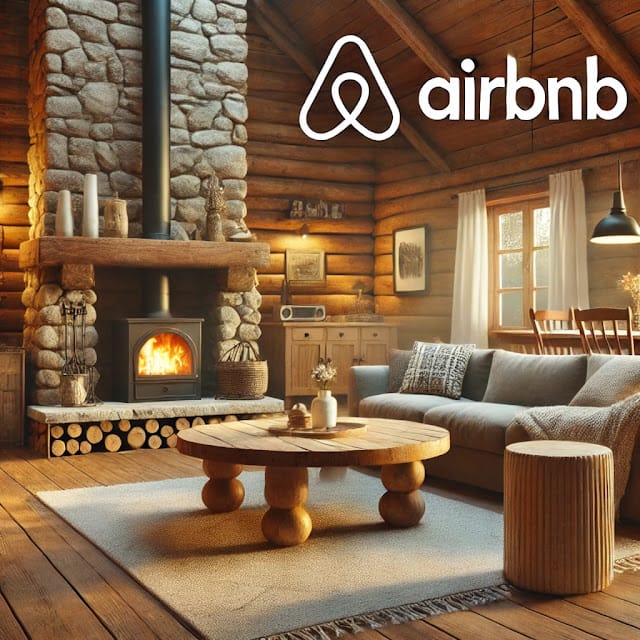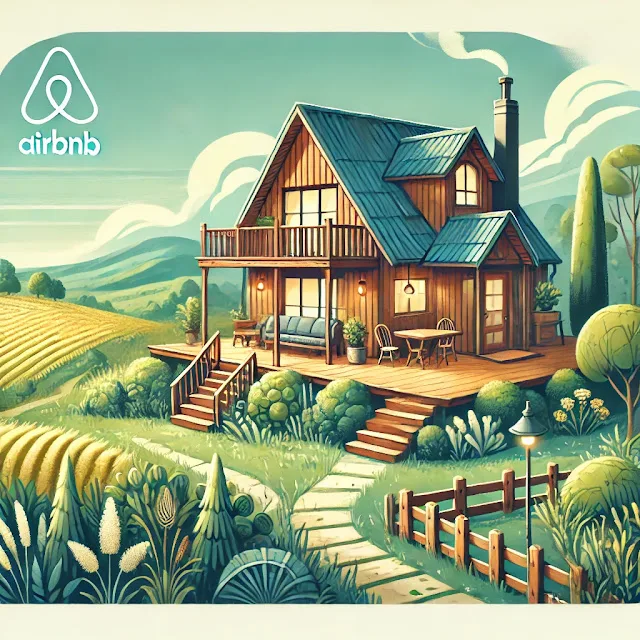Hosting in Remote or Rural Areas: A Guide for Success
Remote or rural Airbnbs offer a unique charm that appeals to travelers seeking tranquility, adventure, or a break from city life. However, hosting in these locations requires a tailored approach to meet guest expectations and overcome logistical challenges. This guide will help you highlight your property’s strengths, address potential concerns, and create unforgettable stays for your guests.
Why Host in a Remote or Rural Area?
Rural Airbnbs have a growing appeal as travelers seek peaceful getaways. Here’s what makes them special:
- Natural Beauty: Scenic views, nature trails, and a sense of escape attract guests looking for relaxation.
- Unique Experiences: From stargazing to hiking, remote locations offer activities that urban areas cannot replicate.
- Niche Market: Rural listings cater to a specific audience, often leading to fewer but more appreciative guests.
Challenges of Remote Hosting
Hosting in less-populated areas comes with its own set of hurdles:
- Accessibility Issues: Guests may struggle to find the property or face transportation difficulties.
- Limited Amenities: A lack of nearby stores, restaurants, or services can impact guest satisfaction.
- Infrastructure Concerns: Unreliable internet, power outages, or harsh weather can pose challenges.
1. Provide Clear Directions
Ensure guests can easily locate your property, even without reliable GPS.
Include Detailed Instructions
- Describe key landmarks, road names, and distances in your listing.
- Offer downloadable or printable directions for guests to use offline.
Signage
Install clear signage on the road leading to your property. Use reflective materials for visibility at night.
2. Prepare for Emergencies
Guests may encounter unexpected situations, such as bad weather or limited connectivity.
Emergency Kits
Equip your property with:
Backup Power and Water
- Invest in a generator for power outages.
- Keep bottled water available in case of plumbing issues.
Local Emergency Contacts
Provide a list of nearby service providers for medical, mechanical, or other emergencies.
3. Highlight Local Attractions
Your location may be remote, but guests are often drawn to the unique experiences it offers.
Promote Outdoor Activities
- Create a guidebook with information about hiking trails, fishing spots, or wildlife tours.
- Include safety tips, such as staying hydrated or avoiding certain areas after dark.
Feature Local Businesses
Support nearby businesses by recommending:
- Local cafes or diners.
- Family-owned shops.
- Nearby events or festivals.
4. Create a Self-Sufficient Experience
Guests in remote areas may prefer properties that minimize their need to leave.
Stock the Essentials
- Provide basic groceries like coffee, sugar, and cooking oil.
- Keep extra toiletries, such as toothpaste and shampoo.
Entertainment Options
- Offer board games, puzzles, and books.
- Set up a fire pit for cozy evenings or stargazing.
Check out my Airbnb Host Shopping List for ideas on stocking your rental with essentials and guest-friendly amenities.
5. Address Connectivity Issues
Guests still expect some level of connectivity, even in rural escapes.
Improve Internet Access
- Install satellite internet or a mobile hotspot for reliable connectivity.
- Mention the internet speed in your listing so guests can plan accordingly.
Offline Alternatives
Provide maps, guidebooks, and pre-downloaded entertainment options for guests to use if internet access is unavailable.

6. Design a Cozy, Rustic Space
The decor in your remote Airbnb should complement the natural surroundings while ensuring guest comfort.
Emphasize Warmth
- Use soft lighting, throw blankets, and area rugs to create a welcoming vibe.
- Incorporate natural materials like wood and stone for a rustic touch.
Optimize Views
Arrange furniture to highlight windows or outdoor areas with scenic views. Guests will appreciate the effort to showcase the location’s beauty.
7. Be Transparent in Your Listing
Set the right expectations by clearly describing the property’s features and limitations.
Highlight Strengths
- Mention unique selling points, such as secluded privacy, starry skies, or nearby outdoor adventures.
Acknowledge Challenges
- Inform guests about limited cell service, long drives to amenities, or weather considerations.
Transparency builds trust and ensures guests are prepared for their stay.
How to Market Your Remote Airbnb
Use your listing to emphasize the benefits of a rural escape.
Professional Photos
Capture the property’s best features, such as scenic views, cozy interiors, or outdoor spaces.
Engaging Descriptions
Write detailed descriptions highlighting the property’s tranquility, unique amenities, and proximity to nature.
Final Thoughts: Embrace the Beauty of Remote Hosting
Hosting in a remote or rural area comes with its own set of challenges, but it also offers opportunities to create memorable stays for your guests. By preparing thoroughly, showcasing the best aspects of your property, and being transparent about potential drawbacks, you can attract the right audience and turn your Airbnb into a sought-after destination.
Ready to elevate your hosting game? Check out more tips on Airbnb Expert Hosting Blog and explore our Amazon Shopping List to find the essentials for rural hosting success!
Discover more from DG Speaks
Subscribe to get the latest posts sent to your email.






